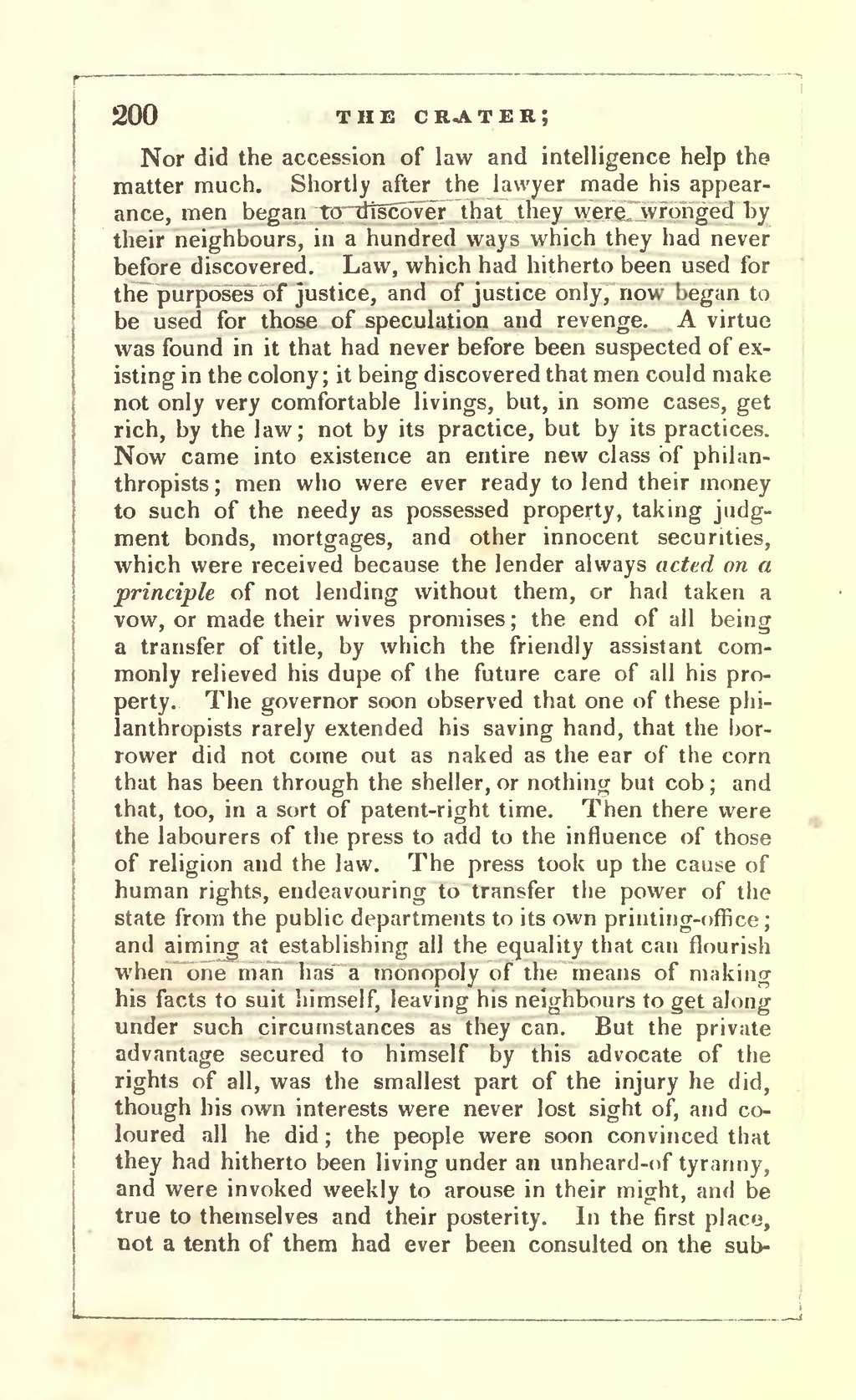200 THE CRATER; Nor did the accession of law and intelligence help the matter much. Shortly after the lawyer made his appear ance, men began to discover that they were wronged by their neighbours, in a hundred ways which they had never before discovered. Law, which had hitherto been used for the purposes of justice, and of justice only, now began to be used for those of speculation and revenge. A virtue was found in it that had never before been suspected of ex isting in the colony; it being discovered that men could make not only very comfortable livings, but, in some cases, get rich, by the law; not by its practice, but by its practices. Now came into existence an entire new class of philan thropists ; men who were ever ready to lend their money to such of the needy as possessed property, taking judg ment bonds, mortgages, and other innocent securities, which were received because the lender always acted on a principle of not lending without them, or had taken a vow, or made their wives promises; the end of all being a transfer of title, by which the friendly assistant com monly relieved his dupe of the future care of all his pro perty. The governor soon observed that one of these phi lanthropists rarely extended his saving hand, that the bor rower did not come out as naked as the ear of the corn that has been through the sheller, or nothing but cob ; and that, too, in a sort of patent-right time. Then there were the labourers of the press to add to the influence of those of religion and the law. The press took up the cause of human rights, endeavouring to transfer the power of the state from the public departments to its own printing-office; and aiming at establishing all the equality that can flourish when one man has a monopoly of the means of making his facts to suit himself, leaving his neighbours to get along under such circumstances as they can. But the private advantage secured to himself by this advocate of the rights of all, was the smallest part of the injury he did, though his own interests were never lost sight of, and co loured all he did ; the people were soon convinced that they had hitherto been living under an unheard-of tyranny, and were invoked weekly to arouse in their might, and be true to themselves and their posterity. In the first place, not a tenth of them had ever been consulted on the sub-
